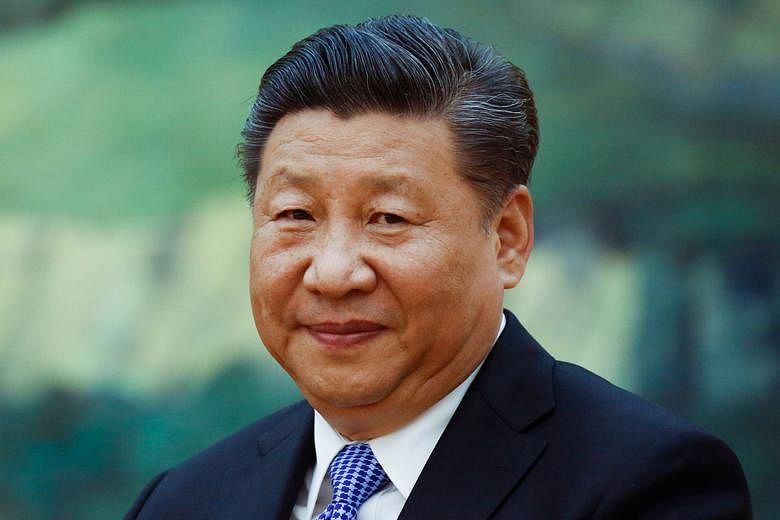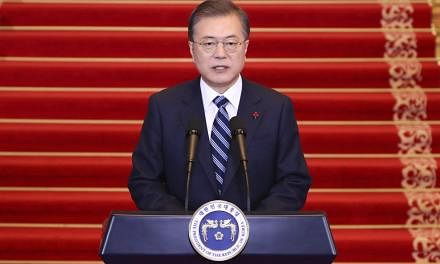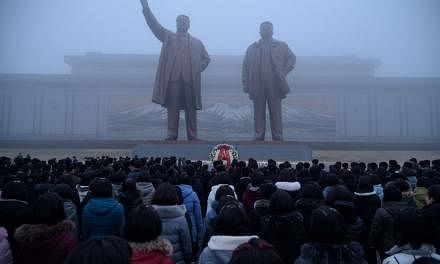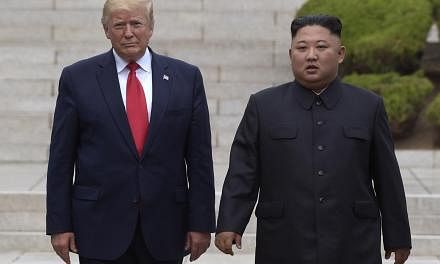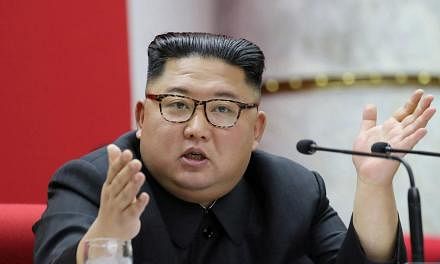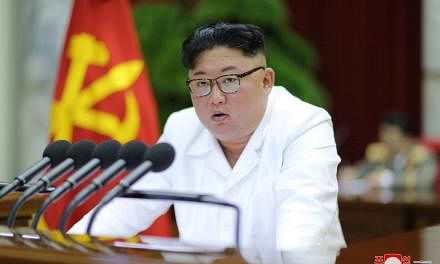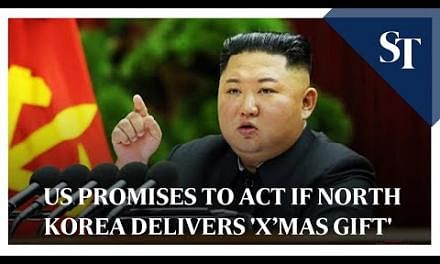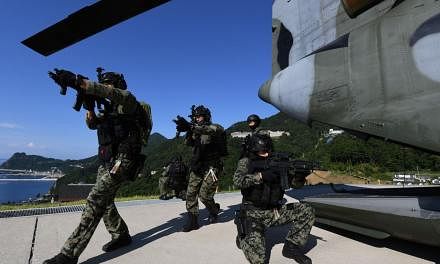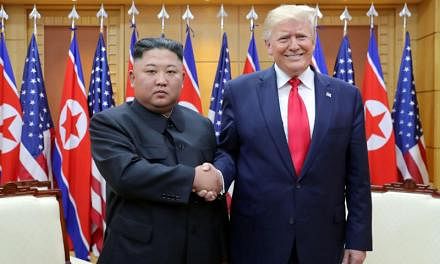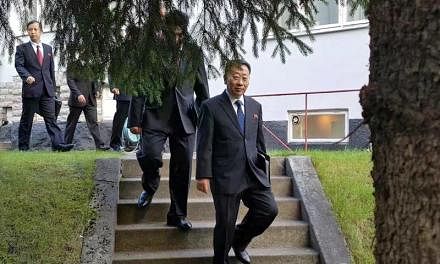Twice last year, Mr Kim Jong Un thumbed his nose at the leader of an ascendant China.
Two of North Korea's missile and nuclear tests coincided with China's hosting of international summits in May and September, raising concerns about Beijing's loss of leverage over its Cold War ally.
But, judging from the smiles and handshakes between Chinese President Xi Jinping and Mr Kim from the North Korean leader' s two surprise visits to China, all has been forgiven.
In late March, Mr Kim boarded an armoured train to make his first overseas trip since taking power in 2011, to Beijing. This was followed by a trip by plane to the Chinese port city of Dalian six weeks later.
Analysts said the trips were aimed at getting Mr Xi's support ahead of North Korea's talks with the US.
For centuries, China's nearest neighbours, including the different kingdoms in Korean history, had paid tribute to the Chinese ruler as a sign of respect. It is customary for China to shower foreign envoys bearing gifts with expensive gifts.
At a state dinner hosted by Mr Xi, Mr Kim was treated to China's most expensive liquor - Moutai costing more than 20,000 yuan (S$4,200) a bottle.
Mr Kim's armoured train reportedly returned with a 500,000 yuan porcelain vase, premium whisky and other foreign luxury brand goods.
During their meetings, Mr Xi, 64, expressed support for Mr Kim's recent pledge to focus on the economy, while reiterating Beijing's position of wanting peace and stability on the Korean peninsula.
China, which marks 40 years of reform and opening up this year, has long sought to persuade its neighbour to follow its path of enacting free market reforms while maintaining tight single-party rule.
The improved ties between the allies did not escape Mr Trump. On May 21, he tweeted that the China-North Korea border had become "more porous" - suggesting that Beijing, which is North Korea's main trading partner, had eased up on enforcing sanctions. He also suggested that Mr Kim hardened his attitude after his second meeting with Mr Xi.
Mr Trump even called Mr Xi a world-class poker player, taking a swipe at Beijing's perceived role in pulling the strings behind North Korea's diplomatic tango with the US.
